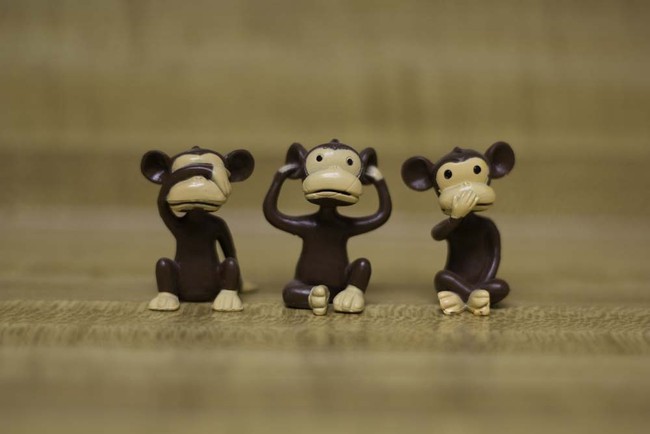
The assassination of Charlie Kirk on Wednesday (it still hurts to write those words) unleashed a torrent of online ugliness. Liberals and progressives across social media posted celebratory memes, cruel jokes, and “he deserved it” commentary.
Conservatives didn’t take that lying down. They began screenshotting the worst offenders, posting their names and workplaces, and alerting employers and licensing boards. The results have been swift: a DC Comics writer has already lost her job on Red Hood. A Virginia anesthesiologist is on track to lose his medical license. Dozens more may face firings or suspensions as their employers decide whether public celebration of political murder is tolerable.
The question: Is this censorship? Or is it something else?
The Five Levels of Speech Suppression
This framework sorts out the different ways speech can be limited, from the mildest to the most severe. Only the top levels — when government is directly or indirectly involved — count as real censorship.
Grow a Thicker Skin (Not Censorship):
-
Social Pushback — People criticizing or mocking those who gloated over Kirk’s death. That’s ugly, but it’s speech against speech. Not censorship.
-
Institutional Gatekeeping — Employers, publishers, or schools choosing not to be associated with someone who publicly celebrates assassination. DC Comics didn’t owe that writer a job. It’s their choice to cut her loose. Still not censorship.
Troubling but Legal (Still Not Censorship):
-
Economic Penalty — Careers wrecked, contracts canceled, reputations shattered. The anesthesiologist who may lose his license is in this zone. It’s devastating, but it remains the result of professional standards and employer discretion, not government action.
Alarm Bells (Real Censorship):
-
Government by Proxy — If federal officials leaned on Twitter or Facebook to silence criticism of Kirk’s murder, or pressured licensing boards to punish individuals for their private speech, that would be real censorship. Government power hiding behind private hands.
-
Direct State Suppression — Arrests for “wrong opinions,” laws criminalizing “insensitive” speech, or outright bans on criticism. That is the bright red line. Coercion by law and state force.
But Is It Moral?
With this structure laid out, it becomes far easier to judge what is and isn’t censorship — and, just as importantly, what is and is not an appropriate and moral response to speech we dislike. Criticism, mockery, boycotts, even disinvitations all fall within the bounds of a free society.
Economic penalties may feel excessive, and often they are, but they remain legal consequences of speech in the public square. Whether they are moral depends on context.
When a doctor publicly cheers the assassination of a political leader, it is not unreasonable for patients and hospitals to decide they no longer trust him with their lives — that is accountability. But when a novelist quietly supports the wrong candidate and suddenly finds her book contract canceled, or when an engineer loses his job because he questioned a DEI policy, that is vindictiveness, not justice. Both situations are legal; only one can be defended as moral.
True censorship only begins when government power, direct or hidden, is used to silence voices. Keeping those categories straight protects both liberty and accountability.
What we’ve seen in the days since Kirk’s assassination is ugly, but it’s not censorship. It’s consequence. People learned, in real time, that free speech doesn’t mean speech without cost. If you go online and cheer the murder of a political leader, employers, publishers, and licensing boards may decide they don’t want your name attached to theirs. That may be harsh, even disproportionate, but it is not the government silencing you.
Related: BLESS Our Nation: A Path Forward After Charlie Kirk
It is entirely consistent to defend free speech while also reporting people who publicly celebrated Charlie Kirk’s assassination. Free speech protects them from government punishment, not from the consequences of their own words in civil society. Employers, publishers, and licensing boards have every right to decide they don’t want to be associated with individuals who cheer political murder. You can both uphold their right to speak without state interference and exercise your own right to call out that speech to those who have a stake in it. That isn’t censorship — it’s accountability.
Charlie Kirk himself understood this reality better than most. He spent his career speaking boldly, often at great personal risk, knowing that plain speech in a hostile climate can carry consequences. On Wednesday, he paid the ultimate price for refusing to soften his words or retreat into safety. Fairly or unfairly, that was the cost of his choice to speak freely — and he accepted it, never hiding, never hedging, never apologizing for telling the truth as he saw it.
Other conservatives have suffered under real censorship (levels 4 & 5): the IRS targeting Tea Party groups, the DOJ intimidating parents, federal agencies colluding with social media giants to suppress dissenting views. That’s the state using its power to muzzle political enemies.
And this is the distinction that matters. If every lost job is called “censorship,” then nothing is — the word becomes noise. And when actual censorship comes — backed by government muscle and the threat of force — we won’t be able to recognize it, let alone resist it.
Keep getting real news you can use. Join PJ Media VIP today and use promo code FIGHT to get 60% off your VIP membership.














